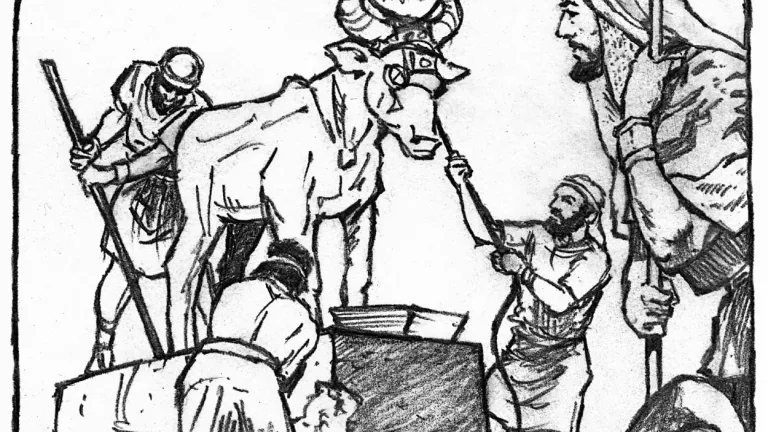2 Chronicles 35:1-19 and Related
Josiah's great Passover
Josiah's Passover
Josiah wasn't just content to remove all the paganism. He purged spiritual "leaven" from the land in preparation of the Passover and Days of Unleavened Bread. For his next reform was to reintroduce God's sacred festivals. These begin with the Passover on the 14th day of the first month of the Hebrew calendar (March-April on the modern Western calendar).
Josiah showed his love for his people by his generosity, providing animals for the sacrifices and offerings from his own herds and flocks. This was a magnificent celebration. Some commentators have called the numbers a gross exaggeration, yet when we consider the scope of the celebration, that there had never been a Passover like it in Israel or Judah, the number is realistic. Even so, it was still far short of the number of animals used by Solomon at the dedication of the temple (see 1 Kings 8:63). The sheep and goats were used for the Passover lambs. The cattle would have been used for peace offerings and most likely for general use through the Feast of Unleavened Bread that followed the Passover for a further seven days.
Again it is made clear that the Passover was kept by "all Judah and Israel who were present." The northern kingdom had been taken captive a century prior. But this makes sense when we realize that a sizable group of Israelites reoccupied the northern territories at this time, known to history as the Scythians. Perhaps many of them responded to the preaching of Jeremiah in Jeremiah 3—wherein God instructed them to return—and to the tremendous leadership and example of King Josiah.
To learn more about the Passover, the Feast of Unleavened Bread, and all of God's festivals, please download or request our free booklet, God's Holy Day Plan: The Promise of Hope for All Mankind.




Beyond Today Bible Commentary: 2 Chronicles